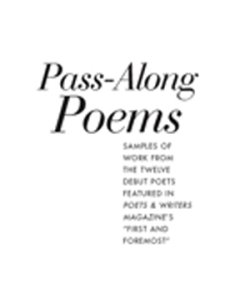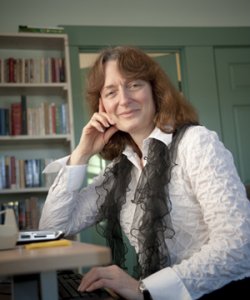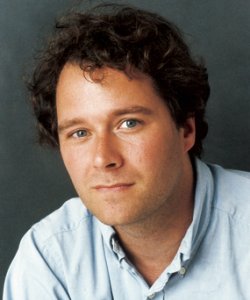Taking Poetry Public

Adam Robinson started the outdoor journal Is Reads to offer the citizens of Baltimore an unusual venue for poetry—the city itself.
Jump to navigation Skip to content

Adam Robinson started the outdoor journal Is Reads to offer the citizens of Baltimore an unusual venue for poetry—the city itself.
National Poetry Month is almost over. We laughed; we cried; we read and, perhaps, wrote some good poems. But now that the month-long verse extravaganza is nearly at an end—although it never really ends for the poets out there, does it—attention turns to the other genres as well. So, perhaps it's time to point out that fiction writers have a number of opportunities during May to enter contests in which prizes are given for short stories.
For the procrastinators out there, tomorrow is the deadline for three contests, all of which offer a thousand dollars and publication. The Journal's Short Story Contest is given for a single short story, Lee K. Abbott will judge; Leapfrog Press's Fiction Award is given for an entire manuscript of stories (or a novel or novella) and will be judged by three Michaels (Michael Graziano, Michael Lee, and Michael Mirolla), and the Southwest Review's David Nathan Meyerson Prize for Fiction is given for a single story and is open only to writers who have yet to publish a book.
For those who want to plan a bit further ahead, the deadline for Hunger Mountain's Howard Frank Mosher Short Fiction Prize is May 10. The author of the winning story receives a thousand dollars and publication.
May 15 is the deadline for the Lorian Hemingway Short Story Competition, the well-defined prize given annually for a story writer whose fiction hasn't appeared in a nationally distributed publication with a circulation of five thousand or more.
And even though it falls on a Sunday, May 31 is the deadline for three short story-related contests: the University of Georgia Press's Flannery O'Connor Awards, Glimmer Train Press's Short Story Award for New Writers, and The Writer's Short Story Contest.

Spread the word about debut poets and their work with this Pass-Along Poems chapbook. Print, assemble, and bind several handcrafted, saddle-stitched editions. Add your recommendations for first-time poets on the back pages, and while you’re at it, paste in your own polished, unpublished work or that of others you admire.
By presenting seventy-three poets, all of whom the editors believe constitute what Charles Bernstein famously called "official verse culture" as well as its unofficial, avant-garde counterpart, the new anthology American Hybrid strives to showcase the diversity of contemporary American poetry while also revealing the unusual affinities within it.

April Ossmann, who recently stepped down as executive director of Alice James Books, the Farmington, Maine–based nonprofit cooperative poetry press founded in 1973, spoke about her time at Alice James from her home in Post Mills, a snowy hamlet in eastern Vermont.

Award-winning poet Lucia Perillo would just as soon surrender the idea of a readership altogether and focus on what truly matters—great poetry.

Dan Chiasson, who last fall succeeded former poet laureate Charles Simic as a poetry editor of the Paris Review, recently spoke—by phone from a New York City taxicab—about his new role at the venerable journal.
The brief, contentious, and ultimately fruitless relationship between poet Stacey Lynn Brown and the editors of Cider Press, points to an essential question that pops up often in literary publishing: Whose opinion—author's or publisher's—should matter most when it comes to finalizing the product that enters the marketplace as a book?
While it's safe to say the twenty-first century has so far not been a great time for American diplomacy, a handful of new poetry anthologies, from Norton, Dalkey Archive Press, North Atlantic Books, and Graywolf Press, offer proof that American poetic diplomacy might be entering a new golden age.
Pattiann Rogers, author of twelve poetry collections, including Wayfare (Penguin, 2008), recently spoke about the process of writing her latest collection, the importance of investigation, and the pleasure of naming the world.